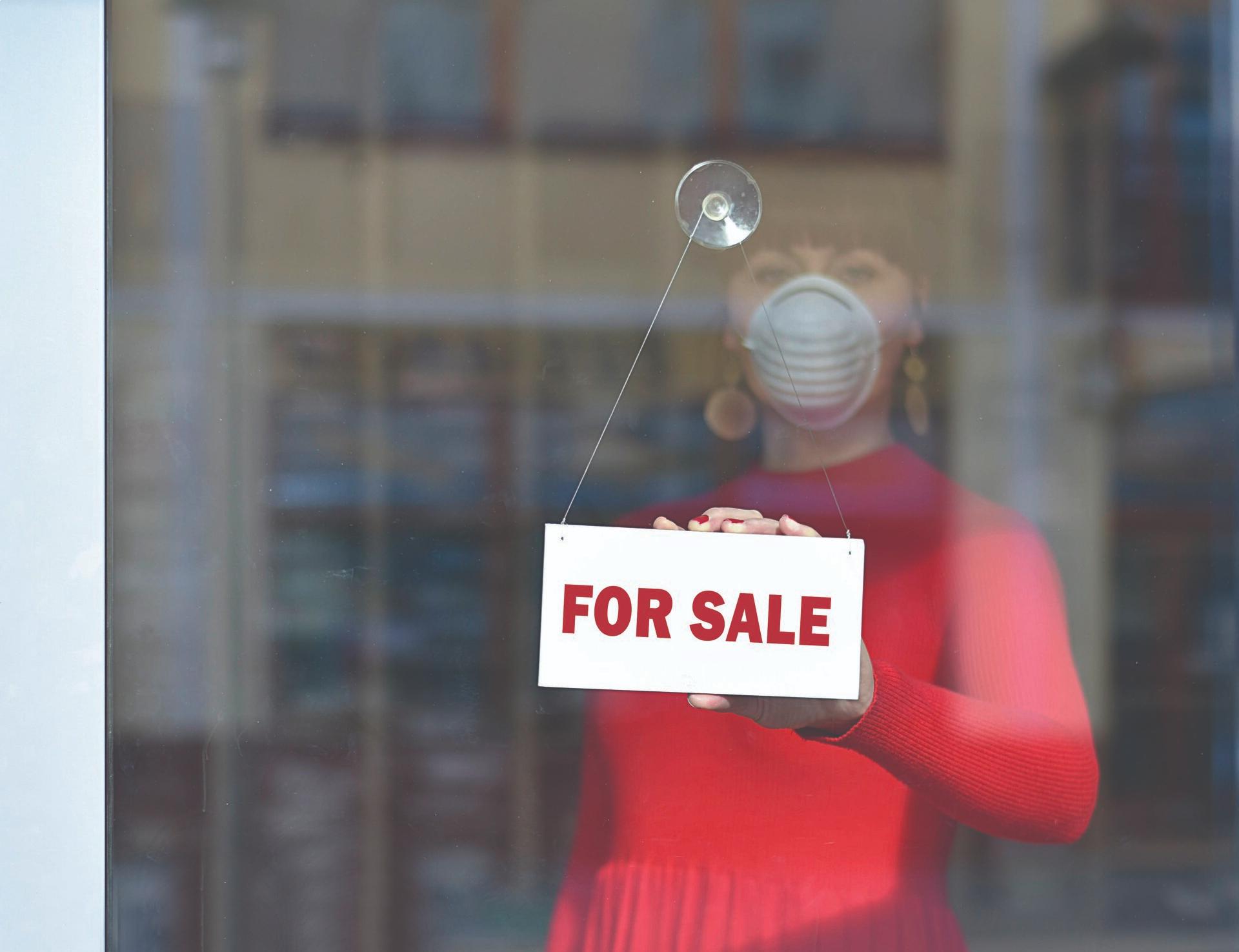
As a sector largely driven by the glamour of social events, the formality of face-to-face business and the throng of the high street, it’s no wonder that the fashion sector is among those to have been most affected by the COVID-19 pandemic.
The impact of COVID on fashion has been widespread and varied, creating new issues within the sector and exacerbating underlying conditions that had been simmering for years. Some players have of course lost out, however others have flourished as a result of the unique situation created by the pandemic.
While high street brands with limited online offerings have been decimated by multiple lockdowns, e-commerce brands have seen sales skyrocket. Similarly, well-established operators specialising in business and occasionwear have seen demand wither, while the stay-at-home economy has led to booming business for lounge and casualwear brands.
Both internationally and in the UK, this has prompted numerous high-profile collapses, particularly among retail brands that were part of bigger groups. Distressed acquisitions have naturally followed, as those with the capital to do deals pounced on businesses in administration.
With business distress continuing to be rife across the UK, the situation could yet worsen as government support is withdrawn. This, combined with the easing of lockdown, the desire of bigger industry players to consolidate in reaction to the pandemic, not to mention the influence of private equity, is turning 2021 into a year of booming dealmaking in the fashion industry.
The death of the high street
The nation’s mid-market fashion industry has, for decades, been fuelled by the Great British high street, with brands having been forged in city centres before expanding to become ubiquitous presences in towns across the UK.
An era of booming trade for brick-and-mortar fashion retailers seemingly bred a belief among owners that the high street was virtually untouchable. Even with a growing shift to online retail over recent years, this faith had largely remained in place.
As a result, many brands neglected their digital markets, putting the online shopping experience a distant second priority to their in-store operations. Particularly notable examples were brands in the Arcadia and Edinburgh Woollen Mill (EWM) groups, many of which had a severely lacking online offering in comparison to other more modern retailers. This left them badly exposed when COVID-19 shuttered the high street.
Without developed e-commerce operations, brands like Topshop, Bonmarche and Dorothy Perkins, were totally left behind by the likes of Boohoo and Asos during the pandemic. The plummeting sales exacerbated other issues that had been underlying for these businesses for several years.
The golden age of the UK high street had led to many operators developing a massive estate of stores in cities, towns, retail parks, shopping centres and villages around the UK (this also happened with fast-casual restaurants). As online retail began to erode high street footfall, the rental costs of maintaining so many outlets became unsustainable for many fashion retailers.
This prompted some to negotiate CVAs and other rental agreements with landlords. Others shuttered their stores. When COVID-19 struck, many stores had massive existing rent arrears or were in the middle of restructuring.
Opportunity to acquire an established mixed dental practice in Tyne and Wear, efficiently led by associates.
LEASEHOLD
Established for over 40 years with a turnover in excess of £500,000, the business enjoys limited competition locally. The sale includes the business assets and the lease of the premises will be assigned to the new owner.
Major landmark store, 100+ years established, occupying valuable trading position within this mid-Devon town, centrally positioned on Crediton high street, opposite Costa Coffee, close Tesco Express, with free restricted stay car parking immediately...
FREEHOLD
Business Sale Report is your complete solution to finding great acquisition opportunities.
Join today to receive:
All this and much more, including the latest M&A news and exclusive resources
Please choose your settings for this site below. For more information please read our Cookie Policy
These cookies are necessary for our website to function properly and provide you with access to all features.
These are analytics cookies that help us to improve the way our website works.
These are used to improve the functional performance of the website and make it easier for you to use.
